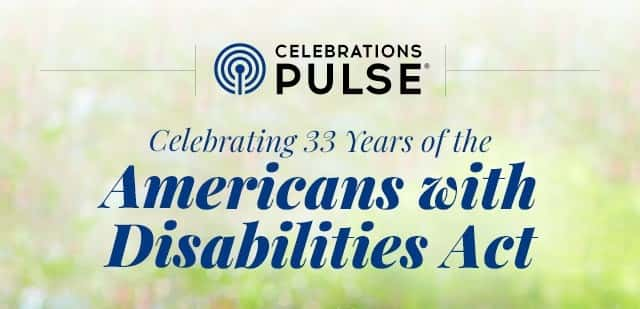This year marks the 33rd anniversary of the Americans with Disabilities Act day (ADA) and its significance to many individuals. We support the ADA’s principles and spirit, as well as the way it enhances the lives of millions of people.

Matt’s story exemplifies how the ADA and our Ticket to Work (Ticket) Program can assist recipients in achieving their professional objectives.
Celebrating Americans with Disabilities Act Day
Matt was hesitant to notify prospective employers about his condition as a job seeker who is deaf and requires accommodations. He was concerned that employers would refuse to hire him if they were aware of his impairment.
That’s when Matt became acquainted with our Ticket Program. This program assists adults between the ages of 18 and 64 who are receiving Social Security disability benefits and desire to work in their careers. As members work toward financial independence through jobs, approved service providers provide support and services through this free volunteer program.
Matt discovered how his job might affect his benefits. He also discovered that our Medicare-related employment incentive enables him to pursue a job without having to worry about health care coverage.
If Matt’s disability prevented him from working, he may resume receiving benefits without having to complete a new application by using the expedited reinstatement method.
Matt is now a full-time human resource analyst. He received accommodations for the interview and on the job as a result of the ADA. He also discovered that the Ticket Program assisted him in charting a course to a brighter future.
A Reminder to Americans
Americans with Disabilities Act Day serves as a reminder that, although it may be difficult for younger people to picture a world without the ADA if you were disabled before it was passed, businesses would turn you away and employers might refuse to hire you.
Public transportation was largely inaccessible. America was just not designed to accommodate all Americans, but courageous activists worked to alter that. That’s why we are enjoying Americans with Disabilities Act Day.
The historic Rehabilitation Act, passed by Congress in 1973, prohibited discrimination by any federally sponsored agency. The ADA was then passed 17 years later by a bipartisan group of legislators, prohibiting discrimination against people with disabilities in most areas of public life, from the workplace and public schools to public transportation and telecommunications.
The Americans with Disabilities Act Day reminds Americans that the ADA has had a significant impact, but there is still much more work to be done. Disabled Americans are still three times less likely to be employed, and when they are, they frequently earn less for doing the same task.
Americans with Disabilities Act Day reminds us of the requirements that apply to many of the circumstances we meet in regular life in order to prevent discrimination against people with disabilities. Employers, state and local governments, public corporations, commercial facilities, transportation providers, and telecommunications firms must all comply with the ADA’s standards.
Americans with Disabilities Act Day reminds us about a person with a disability who is defined as someone who:
- possesses a physical or mental disability that significantly limits one or more major life activities
- has a history or record of such an impairment (for example, cancer in remission), or
- is seen by others to have such an impairment (for example, a person with extensive burn scars).
The celebration of Americans with Disabilities Act Day tells us that people with disabilities have the same opportunities as everyone else to enjoy employment opportunities, purchase goods and services, and participate in state and local government programs.




